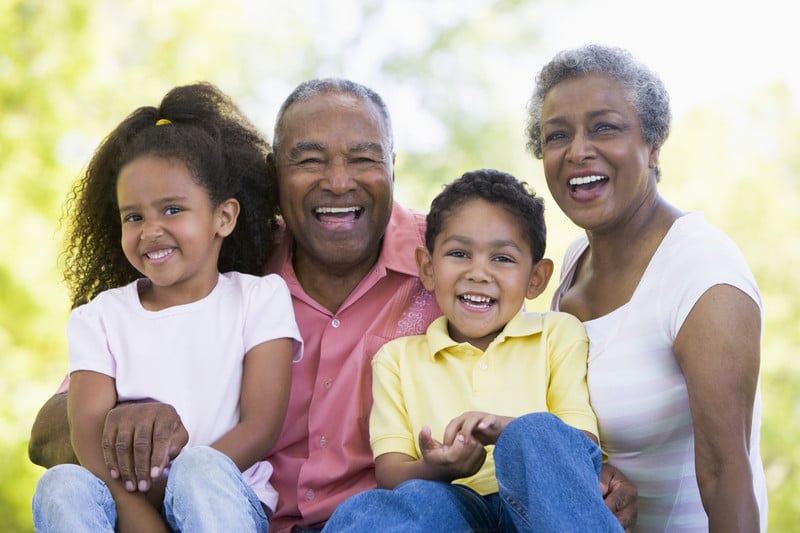One of your biggest assets during and after divorce can be your children’s grandparents – on both sides of the family. Don’t let these grandparents get caught in the drama between you and your former spouse because it’s usually the children that suffer the loss.
In most cases, grandparents love their grandchildren. While they want to help in any way they can, many grandparents are afraid to get involved. They don’t know how to ease the hurt, confusion and other emotions affecting the grandkids as well as their own adult children.
Since every divorce is unique there are no cookie-cutter solutions or steps for grandparents to follow.
But here are some guidelines to help you reach out to the grandparents who want to share their love and support during divorce.
If the grandparents haven’t been close to the kids before your divorce, post-divorce is a difficult time to develop a relationship. But if grandma and grandpa already have that bond established, it’s important to keep the love connection at this time when the children are facing so many unknowns.
When communication and trust are strong between grandparents and grandchildren it’s easier to bring up challenging issues for a chat. Children who are comfortable in their relationship with their grandparents are more likely to confide their frustrations, fears, and insecurities in them. Of course, it’s always more effective for grandparents to offer advice once the kids ask or bring the subject up. Then the elders can share their love and wisdom in an age-appropriate manner. But G-ma and G-pa can also ask questions and initiate conversations if they’re mindful of how the kids are feeling and responding.
One important word of caution: If grandparents want to discuss issues regarding divorce or other life challenges, it is essential that they discuss this subject first with you and your former spouse to get permission in advance!
It’s never a grandparent’s place to interfere if they are not welcome — tempting as it may be. So bring up the topic you want them to talk about with the grandkids first. Explain your concern on behalf of the children, and what message you’d like the grandparents to share with them. If G-ma and G-pa understand and respect your values, then encourage them to give it their best shot.
Should a child be resistant to the conversation, grandparents should not push the issue. They are better off retreating into safer territory. If the children do confide in their grandparents, advise the elders not to make judgments about either parent to the kids. Instead, have them listen, offering comforting support and embraces. Then encourage the grandparents to talk with you and your ex about ways they believe they can provide healing, reassurance, and support to your children during this difficult time.
If the subjects that come up are complex, advise the grandparents you will be bringing in professional counselors to handle the situation with all involved. Therapists and divorce coaches are trained to handle heavy emotional and psychological issues. So leave it in their hands. You want grandparents to be loved as the caring family they are – not as a therapist or judge!
If the grandparents are unaware of the emotional turmoil the divorce or other challenges is taking on their grandchildren, schedule time to talk with them. You can bring articles, websites and other valuable resources about how children can be adversely affected by family drama and share that during your conversation. Have some positive and concrete suggestions regarding how they can help, if possible. Don’t criticize or blame your ex. Focus on their love for the kids. Don’t accuse, judge, dismiss or demean their grandparenting style. Remind them your family is not unique and that most families coping with divorce face similar issues.
Remind the grandparents how much their support means to you so they don’t overlook their relationship with the kids following the divorce, especially if relocation or other major changes are in the works. Children need, want and value the safety and reassurance of their grandparents’ love. Let G-ma and G-pa be there for their grandchildren as a positive asset in the children’s adjustment to divorce and other challenges now and for a long time to come.


Leave a Reply